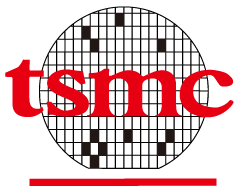Taiwan Semiconductor Manufacturing Company (TSMC) is arguably the most important company you’ve never heard of. It’s the world’s largest dedicated independent (pure-play) semiconductor foundry, meaning it manufactures chips designed by other companies, rather than designing and selling its own branded chips. Here’s a comprehensive overview, covering its history, technology, business model, current status, and future outlook:
1. History & Background
- Founded: 1987 in Hsinchu, Taiwan, by Morris Chang. Chang is widely considered the “father of the semiconductor foundry business.”
- Revolutionary Business Model: Before TSMC, most semiconductor companies were “integrated device manufacturers” (IDMs) ? they designed, manufactured, and sold their own chips (like Intel, Samsung, and Texas Instruments). Chang envisioned a dedicated foundry model, allowing companies to focus on design while outsourcing the complex and expensive manufacturing process. This was initially met with skepticism, but proved incredibly successful.
- Early Growth: TSMC initially focused on manufacturing for smaller companies that lacked the capital for their own fabs. It gradually gained credibility and attracted larger clients.
- Dominance: Over the decades, TSMC has consistently invested heavily in research and development, staying at the forefront of process technology, and has become the dominant player in the foundry market.
2. Technology & Manufacturing Process
- Process Nodes (nm): Semiconductor manufacturing is defined by “process nodes,” measured in nanometers (nm). Smaller nodes mean more transistors can be packed onto a chip, leading to increased performance and efficiency. TSMC is a leader in shrinking these nodes.
- Currently: TSMC is in high-volume production of 3nm technology.
- Roadmap: They are actively developing 2nm and beyond, with plans for 1.4nm and even smaller nodes in the future.
- EUV Lithography: A critical technology for advanced nodes is Extreme Ultraviolet (EUV) lithography. TSMC is a major user of ASML’s EUV machines, which are incredibly complex and expensive.
- Advanced Packaging: Beyond shrinking transistors, TSMC is also investing heavily in advanced packaging technologies like:
- 3D Packaging: Stacking chips vertically to increase density and performance.
- Chiplets: Breaking down complex chips into smaller, specialized “chiplets” that can be assembled together.
- Manufacturing Facilities (Fabs): TSMC operates numerous fabs (fabrication plants) primarily in Taiwan, but also expanding into the US, Japan, and Germany. These fabs are incredibly complex and require massive investment.
3. Business Model & Clients
- Pure-Play Foundry: TSMC only manufactures chips for others. This avoids conflicts of interest with its clients.
- Key Clients: TSMC’s client list reads like a who’s who of the tech industry:
- Apple: A major customer, relying on TSMC for the A-series and M-series chips powering iPhones, iPads, and Macs.
- AMD: TSMC manufactures the CPUs and GPUs for AMD, a major competitor to Intel.
- NVIDIA: Increasingly reliant on TSMC for its high-end GPUs and AI accelerators.
- Qualcomm: Uses TSMC for many of its mobile processors.
- MediaTek: A leading fabless semiconductor company that relies heavily on TSMC.
- Other: Broadcom, Xilinx (now AMD), and many others.
- Revenue Model: TSMC charges clients based on wafer starts (the number of wafers processed) and the complexity of the manufacturing process. Advanced nodes command higher prices.
4. Current Status & Challenges (as of late 2023/early 2024)
- Market Dominance: TSMC controls over 50% of the global foundry market, with Samsung Foundry being its main competitor (though significantly smaller).
- Geopolitical Importance: TSMC is strategically vital. Taiwan is a politically sensitive region, and a disruption to TSMC’s operations would have a massive impact on the global economy.
- US Expansion: Driven by geopolitical concerns and government incentives (CHIPS Act), TSMC is building a major fab in Arizona (USA). This is a multi-billion dollar investment.
- Diversification: TSMC is also expanding into Japan and Germany to diversify its manufacturing footprint.
- Competition: While dominant, TSMC faces increasing competition from Samsung Foundry and, to a lesser extent, Intel (which is aiming to become a major foundry player).
- Economic Slowdown: The global economic slowdown and reduced demand for consumer electronics have impacted TSMC’s growth in the short term.
- Skilled Labor Shortage: Finding and retaining skilled engineers and technicians is a constant challenge.
5. Future Outlook
- Continued Investment in R&D: TSMC will continue to invest heavily in developing even smaller and more advanced process nodes.
- Growth in AI: The demand for AI chips is exploding, and TSMC is well-positioned to benefit from this trend. AI chips require the most advanced manufacturing processes.
- Advanced Packaging Leadership: TSMC will likely become a leader in advanced packaging technologies, which are becoming increasingly important for chip performance.
- Geopolitical Risks: The geopolitical situation surrounding Taiwan remains a significant risk factor.
- Global Expansion: TSMC’s expansion into the US, Japan, and Germany will continue, but will take time and significant investment.
- Sustainability: Semiconductor manufacturing is energy-intensive. TSMC is focusing on reducing its environmental impact.
Resources for Further Information
- TSMC Official Website: https://www.tsmc.com/
- Wikipedia: https://en.wikipedia.org/wiki/Taiwan_Semiconductor_Manufacturing_Company
- Reuters: https://www.reuters.com/markets/companies/tsm/
- Bloomberg: https://www.bloomberg.com/quote/TSM:US
In conclusion, TSMC is a critical component of the global technology supply chain. Its dominance in semiconductor manufacturing, coupled with its ongoing investment in innovation, makes it a company to watch closely in the years to come.
Is there anything specific about TSMC you’d like me to elaborate on? For example, are you interested in:
- Its financial performance?
- The impact of the CHIPS Act?
- The competition with Samsung Foundry?
- Its role in the AI revolution?
- The risks associated with its location in Taiwan?
